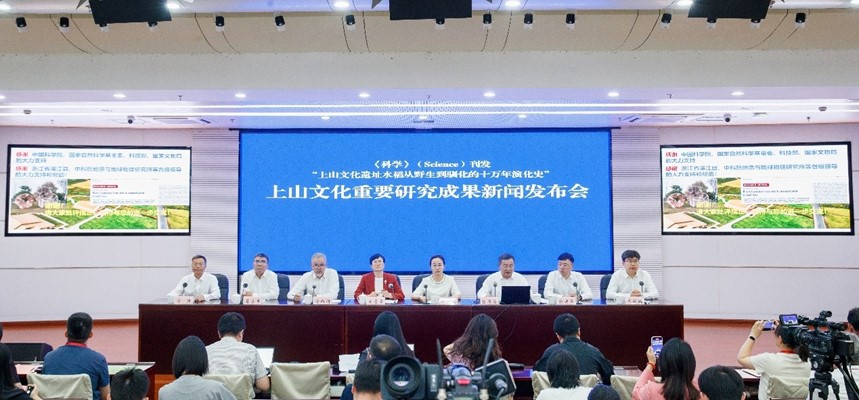On May 24, a groundbreaking research paper titled "100,000 years of Evolution History of Rice from Wild to Domesticated at the Shangshan Cultural Site" was published in the prestigious journal Science. This research was a collaborative effort by IGGCAS, the Zhejiang Provincial Institute of Cultural Relics and Archaeology, Linyi University, the Shangshan Site Management Center, and other 13 institutions across China. The findings have been widely reported by major domestic media outlets, including CCTV News, Xinhua News Agency, and People's Daily.
At 9 am, IGGCAS, in conjunction with the Zhejiang Provincial Institute of Cultural Relics and Archaeology, Linyi University, and the Pujiang County People's Government, held a press conference in Pujiang County, Jinhua, to announce the latest research results. Academician Qingyun presented the findings on behalf of the Institute, and researcher Lu Houyuan provided a detailed introduction to the research and fielded questions from reporters.
Rice is not only the staple food for half of the world's population, but its cultivation and domestication have also profoundly influenced the formation and development of Chinese civilization. This study used phytolite microfossil analysis and other methods to trace the continuous evolution history of rice from wild to domesticated over 100,000 years. The key findings are as follows: approximately 100,000 years ago, wild rice was widely distributed in the lower reaches of the Yangtze River; around 24,000 years ago, humans began harvesting and utilizing wild rice; the pre-domestication process of wild rice began about 13,000 years ago; around 11,000 years ago, the domestication of rice farming coincided with the origins of wheat farming in the Mesopotamian region of Western Asia. International experts have highly praised these results, considering them a significant contribution to the study of human and rice co-evolution. The findings offer profound insights into the development of human society, the origins of agricultural civilization, and the importance of Shangshan culture.
At the press conference, Academician Di Qingyun stated, “This is not only a scientific breakthrough but also a revelation of our civilization. This achievement significantly deepens our understanding of the origins pattern of global agriculture and contributes to enhancing national cultural self-confidence.”

Press conference scene (Photo: Pujiang RongMedia Center)